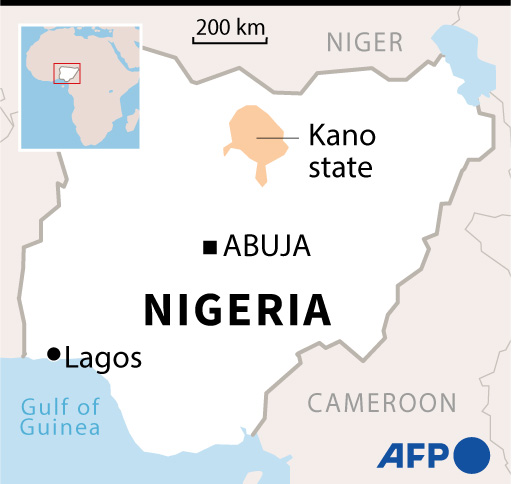Authorities in northern Nigeria’s largest city have begun evacuating more than 5,000 street children seen as a “security threat” and a growing concern as an economic crisis forces more to fend for themselves.Sharia police, the Hisbah, have carried out midnight raids on motor parks, markets and street corners in the regional capital, Kano, since the beginning of the year, evacuating children as they sleep.”We have so far mopped up 300 of these boys from the streets and taken them into a camp provided for their rehabilitation,” Hisbah’s director-general Abba Sufi told AFP.”Their continued living on the streets is a huge social and security threat because they are potential criminal recruits,” he said.”They are a ticking time bomb that needs to be urgently defused with tact and care.”In November, Kano State governor Abba Kabir Yusuf set up a committee to rid the city of the street children, most of whom are boys. Many sleep in the open and have no access to education and parental care.With the highest divorce rate in Nigeria, according to official figures, Kano is dealing with a surge in children from broken homes.- From villages, other states -Largely left to fend for themselves, the boys roam the city, begging, selling articles at traffic lights and scavenging for scrap metal to sell to get money to feed themselves. The west African economic powerhouse faces its worst economic crisis in decades, with inflation soaring to 34.6 percent in November, leaving many struggling to eat.Nigeria has 18.5 million out-of-school children, with Kano State accounting for 1.9 million, the highest rate in the country, according to the United Nations Children’s Fund (UNICEF) in a 2022 survey.The Kano figure accounts for 39 percent of the total number of children living in the state, the 2022 Nigeria Multidimensional Poverty survey said.Officials told AFP that many of the children in Kano city came from neighbouring states.”Some of them are from Kano, while others are from other states,” said Hisbah commander Aminu Daurawa.”The first step is profiling them and identifying where they came from,” he added.Some were sent from villages to learn how to read the Koran at informal Islamic religious schools called almajiri.Residents said many students of the Koranic schools beg for food and alms between classes.Attempts by authorities and local groups to intervene and support the age-old almajiri system have faced opposition from traditional clerics.The Hisbah police plan to provide “psychosocial” support and counselling to the children before enrolling those who show interest in school, Sufi said. Others will be given seed money to start a trade of their choice.Daurawa told AFP that out-of-state children will be repatriated after their rehabilitation.- New approach -Previous attempts to clear the city of street children have failed.Between 2017 and 2018, the Hisbah evacuated 26,000 children and reunited them with their parents in and outside Kano, but they returned to the streets after a lull, according to Daurawa.During the Covid-19 pandemic, authorities in Kano shut almajiri schools and transported the pupils to their states.But they returned when the schools reopened. “We want to avoid a repeat of the past experience, which is why we changed approach by camping the children and rehabilitating them before sending them back into the society,” Sufi said.
